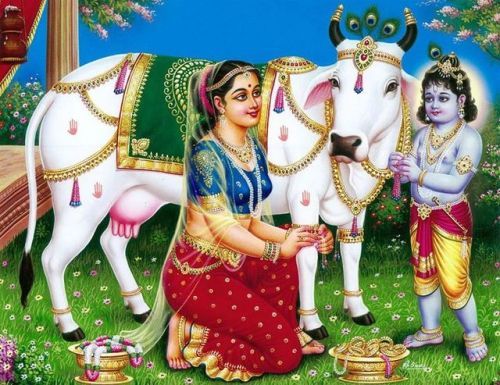
Do animals have morality?
Akhandadhi das: There have been a number of scientific studies recently that try to analyze if animals have any form of morality. This is obviously complex since it is nigh impossible to get inside the mind of a poor dumb creature and there is always the accusation of anthropomorphizing.
The subject is important to many people because there seems to be various beliefs with vested interests in the interpretations. For instance, Charles Darwin believed that animals expressed morality and that what we understand as morality in humans was derived from the primitive form in lower creatures. This is important as the basis for evolutionary psychology.
This was in direct contrast with Biblical creationists who need to believe that there is a major moral distinction between humans and the animal kingdom. In their mind, morality is the prerogative of the soul which can only be found in humans.
I suppose I also need to mention my preconception informed by my interest in Vedanta philosophy. Vedanta asserts that all living beings are activated by the presence of the life force (atma or soul, if you like). Although there is no difference in the potency of the atma whichever type of body it inhabits, there is a limiting or conditioning effect when the soul is inside different species. The result is a hierarchy of conscious awareness from humans down through the species to a bacteria or whatever. So, Vedanta, in common with the evolutionary psychologists, would expect to see humanlike expressions in our fellow inhabitants of planet Earth.
There are many examples of caring behavior in the animal world. Certainly, we see the care, even sacrifice, of mother animals for their children. But also, certain primates will share and feed other blind or indisposed members of their group, not their relatives. In one experiment, chimps were receiving food by placing tokens in a machine. One chimp was having problems inserting the tokens, so another chimp intervened and inserted the tokens for her and let her take the food. Bonobo apes have shown kindness in helping other species. A friend of mine, tells of being rescued by dolphins who swam between him and some circulating sharks. The dolphins remained by his side until he reached the shore.
So, it appears that animals may indeed exhibit altruism, empathy, caring and selfless kindness and affection – and that’s about as close to “love” as you can get.
However, it is a different question to define this as morality, which would seem to require a choice between right and wrong. I would suggest that the altruistic behavior of animals is a choice of sorts. The animal sees a situation and chooses to intervene in a positive caring way, but is it because it is impelled by its empathy or because it has dwelt on the rights and wrongs of the scene?
Caring action is a symptom of a moral human because we would define the opposite behavior as immoral. Would we ever describe a chimp as immoral for not choosing to help a neighbor? I don’t think so. So, as much as we are impressed and intrigued by animals showing empathy and caring, we don’t judge them when it is absent. So, it seems there may be a distinction between altruism in animals and moral choices made by humans.
As much as Vedanta promotes the equality of all life, it also helps us to recognize the subtlely different restrictions or benefits for the soul as it transmigrates from life in one species to another. Vedanta accepts that all creatures express some form of love, but only when the soul is in a human body does it gain the additional awareness of the intrinsic rightness or wrongness of one’s own actions. My dogs know when they’ve done something I think is bad and they show contrition, but I reckon it’s only because I am upset with them, not because they have a guilty conscience.
Vedanta ascribes the responsibility for our actions – good or bad – to humans and thus karma can only be accrued from human actions not by anything done whilst we are in an animal body.
